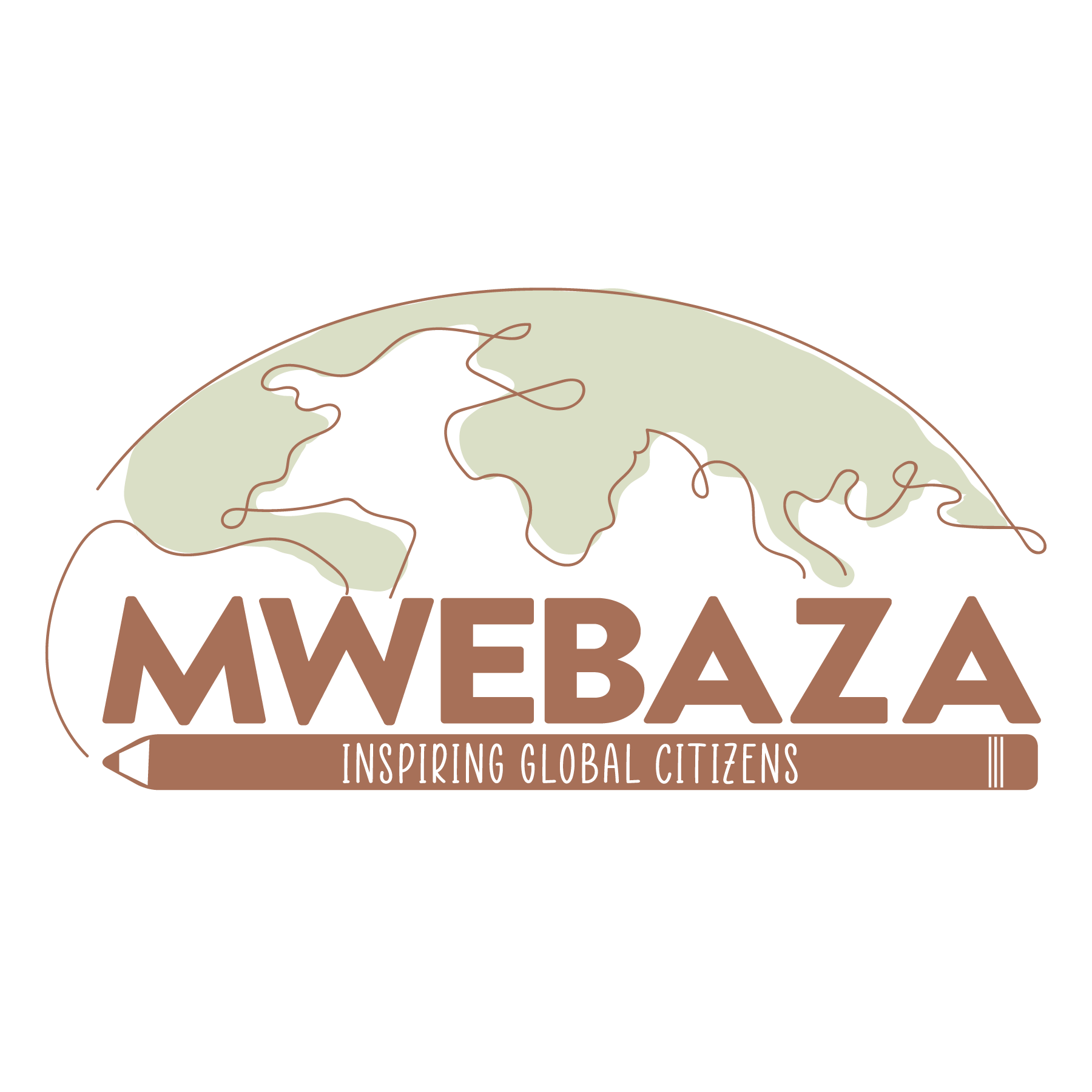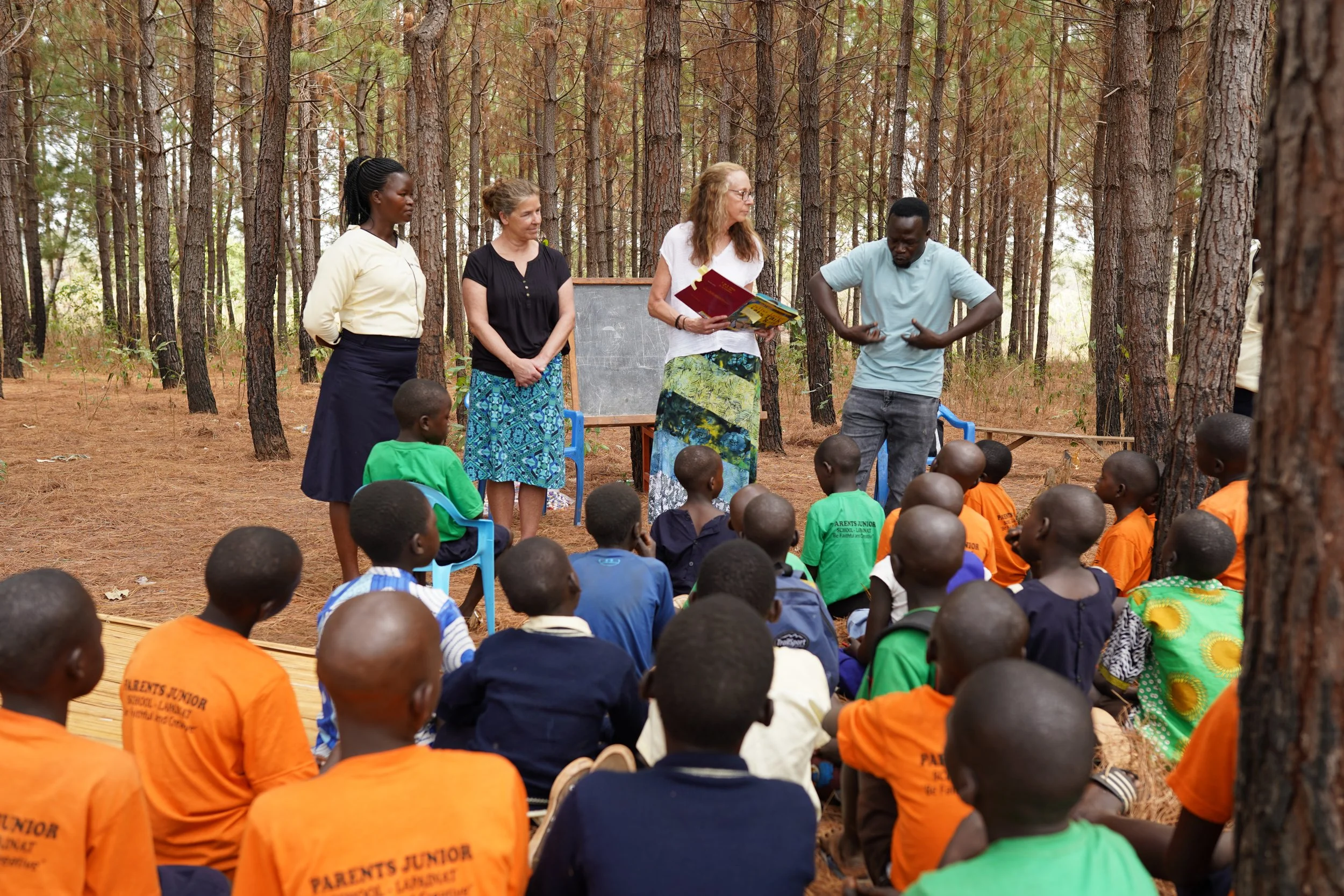What is voluntourism and why are we reimagining it?
Our U.S. team visits Mwebaza’s partner school communities in Uganda each summer. This upcoming summer, we’re inviting you to come. We recognize that bringing people from our U.S. community to Uganda broadens perspectives and creates lasting bonds between people from different cultures. In an effort not to promote the negatives of voluntourism, we are reimaging what a cultural immersion trip looks like and how it can best serve visitors and hosts. Let’s dive in.
The term “voluntourism” refers to the practice of traveling, usually abroad, for vacation and a volunteer activity. According to this New York Times article, approximately 10 million people a year participate in some type of voluntourism trip. As this type of traveling continues to rise, studies show that voluntourism can actually harm host communities and only benefit the volunteers. So, we did a deep dive into how better to ethically visit Uganda with people who are interested in traveling there, meeting our partner school communities, and collaborating on a project. The following is what we came up with.
Both Communities Have Skills to Share
Before the pandemic, Mwebaza brought many Coloradan community members to Uganda to meet and share their culture, ways of life, and skills with Ugandan community members. In turn, American visitors would experience Ugandan culture, ways of life, history, and community by spending the majority of their time in school communities and with host families.
Jennifer, Karie, Hillari, and Jackson teach lessons about loving yourself for who you are.
We want to continue this trend but be more strategic about sharing skills and knowledge between communities equally. What does this look like? Our Ugandan community members are skilled agriculturalists, beekeepers, entrepreneurs, educators, builders, artists, and IT professionals. They have so much knowledge to share, and we want to create a better platform from which they can share it.
During our next trip, visitors may participate in community classes, school visits, farm tours, cooking classes, and social enterprise tours to learn new and innovative ways of doing things from Ugandans.
Why don’t we bring our Ugandan friends to the U.S.?
We brought Headmistress Namatovu Catherine from Mwebaza Infant Primary School to Colorado many years ago and the visa process was hard on all involved. It took nearly three years, surplus financial resources, and staff time. We wish that U.S. immigration and travel policies were different and thankfully, numerous nonprofits are working on making visiting and living in the U.S. more accessible.
How are these trips benefitting visitors and hosts?
Bashir, Kenny, and Frankstein during a teachers’ home build at St. Paul Infant Primary.
People enjoy sharing their stories. As humans, we connect through common threads, woven together during shared meals, walks, and leisure time. U.S. visitors get the opportunity to spend quality time with Ugandan people outside of a tourist setting. Julie Meyers traveled with us in 2019 and noted, “You can’t break bread with a local and be part of something bigger than you’ll ever be without going with this group. You’re being invited to Uganda as a friend, not a visitor.”
When traveling abroad, we often get the experience of peering in on how the country’s residents do daily life. We can dip our toes in and find off-the-beaten-path experiences, but to truly be immersed in Ugandan culture, you need someone there to open their door to you and let you in. Our Ugandan friends are excited to do just that.
In exchange, Ugandan hosts may learn about the numerous cultures in the U.S. We bring people from varied walks of life, family backgrounds, and experiences who are open to connecting and making new friends. Visitors have the option to share their skills in education, entrepreneurship, agriculture, technology, and more so that Ugandans may learn different ways of doing things.
Self-Reflection is Key
We’ve talked in our blog about the white savior mindset. Before embarking on this trip or one like it, it’s helpful to turn inward and examine your reasons behind wanting to visit Uganda and our partner school communities. Read through our toolkit that debunks some inappropriately held beliefs about the continent of Africa and its billion-plus residents. Reach out to us with any concerns or questions and we’d love to chat!
Ready to make new friends?
Check out the complete travel package, below, then email devaki@mwebaza.org if you’re interested in going. If we haven’t met you yet, we’d love to meet you and learn about your interests, skills, and schedule to see if we can make this amazing adventure happen, together.




